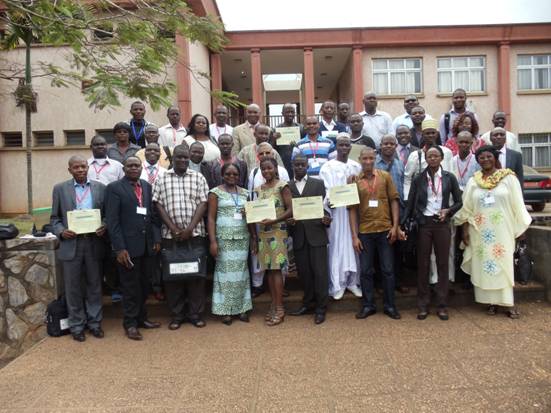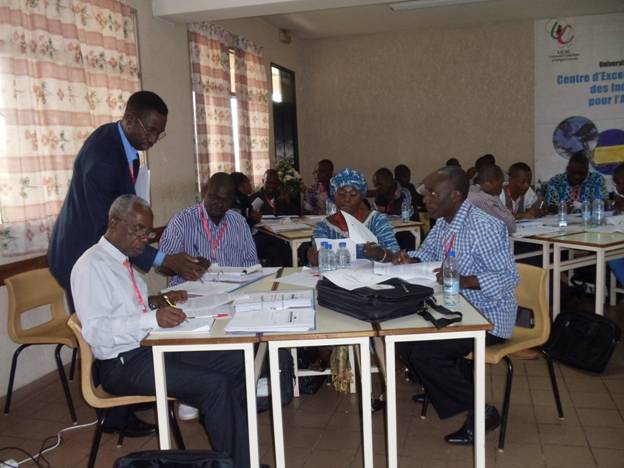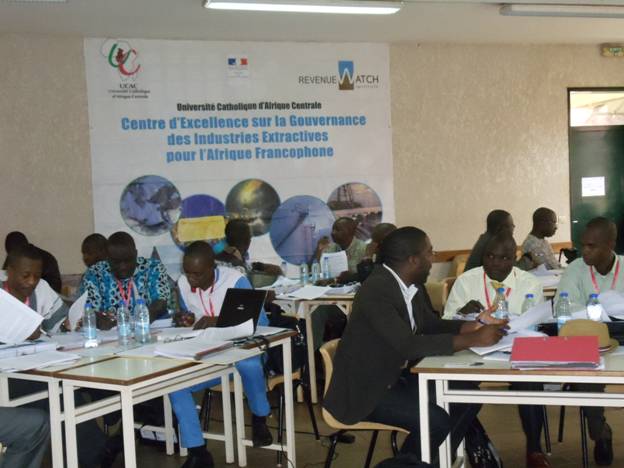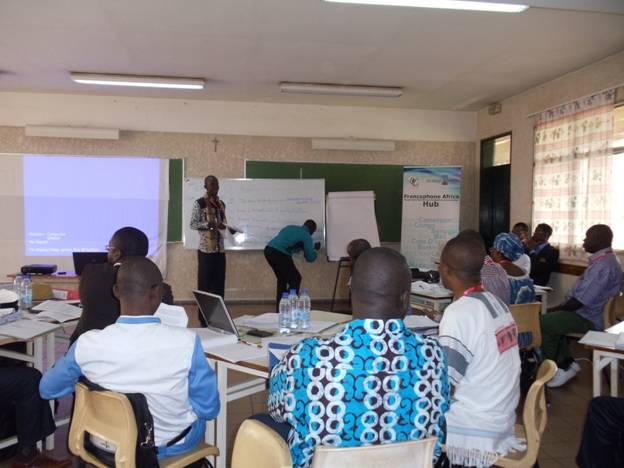
Third Summer School on Extractive Industries Governance for Francophone Africa Concludes
The third summer school on extractive industries governance organized by the Francophone Africa Hub took place from August 12-23, 2013, at the Catholic University of Central Africa in Yaoundé, Cameroon. Thirty four participants attended the course. Participants included media and civil society organizations from the resource rich countries in Francophone Africa: Burkina Faso, Cameroon, Chad, Central Africa Republic, Congo (Republic), Democratic Republic of the Congo, Equatorial Guinea, Gabon, Guinea (Conakry), Mauritania, Mali, Niger, Senegal, and Togo.
"The school is very interesting because, for Africa, a continent very rich in natural resources, all kind of resources, there are people in civil society who don't know the sector. They are not aware of challenges related to the development of the sector. So this initiative from RWI is there to fill the gap," said Jean Claude Katende of ASHADO and PWYP DRC.

"We feel privileged to benefit from this school: Modules were important and relevant to our work. The methodology was appropriate and participatory. We benefited from high-level resource personnel," said Jacques Bakulu, from CEPECO DRC. Instructors at the school are experts at the national, regional, and international levels, with various backgrounds: economist, fiscalist, lawyer,academics, and officials from administrations and CSOs.

The two-week course focused on challenges and opportunities surrounding the management of the extractives sector, the value chain approach was used to discuss key issues and decisions. "It is an excellent opportunity offered by the Revenue Watch Institute to civil society organizations and media to be trained on the technical piece of EI. The particular value of this training is that it offers a large range of experience-sharing that helps us to understand efforts made in other countries and to learn from CS initiatives and work there. This will help us to review our own strategy of engagement, connect with others, and create synergies.... The most interesting part of the course for me and most relevant for my organization's work is the issue of transparency at the upstream phase of projects: the decision to extract, the mining contracts which are still secret in my country, local content, revenue management, and sharing," said Sandrine Touko, from TI - Cameroon.

Basseratou Kindo from Burkina Faso said, "The training helped to lift the veil, in more complex questions. When back home, I promise to apply the knowledge acquired during the two-week course. As journalists, we should produce reports, deepen our understanding on specific topics in order to inform readers" (Learn more »)
During the two weeks, participants travelled to Douala, about 250km from Yaoundé, to visit a gas project developed by Victoria Oil and Gas. The field trip offered the chance to see the infrastructure in place for the extraction of the gas and to engage with the corporation on various question: the development process, the production, the utilization of the gas, taxes paid by the company, the socio-environmental impact of their project, based in a popular area of the city called Logbaba. Participants also have the chance to engage with communities to understand how they are affected by the project. (Learn more »);

Since 2012, the Francophone Africa Summer School has benefited from financial support from the French Cooperation through the Minister of Foreign and European Affairs. The GIZ REMAP/CEMAC project also provided scholarships to some participants from the Central Africa sub-region. "Civil society organizations and media are oversight groups that need to be trained and equipped in order to make a strong contribution. Developing partners should invest in supporting such initiatives," said Sandrine Touko.
Related articles on the Web:
Industries extractives : Un « prolongement » pour approfondir les connaissances
Douala : Une usine d’exploitation de gaz crée des désagréments
Fiscalités minières : « Les exonérations fiscales attirent les investisseurs » dixit Adrien Somda
Authors

Evelyne Tsagué
Africa Capacity Development Advisor